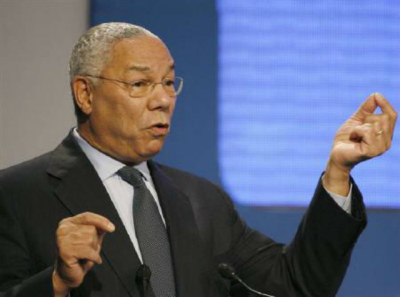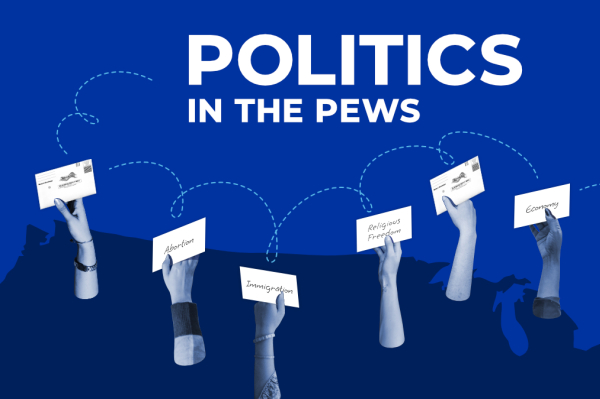My thoughts on the death of General Colin Powell

News of the death of General Colin Powell on Oct. 18 brought back many memories to me personally. When I was commissioned as a new Army officer in the summer of 1990, General Colin Powell was the chairman of the Joint Chiefs of Staff, the senior military leader. I was branched Infantry and Powell had come up through the Army as an Infantry officer. I considered his career somewhat of a role model to follow.
Desert Shield began in 1990, leading to Desert Storm in early 1991. I was assigned to a Desert Storm spearpoint unit, the 24th Infantry Division, and we were all expecting a much longer and more costly war in which we would serve. In the end, the “Hundred Hour War” came and went before we finished Infantry Officer Basic Course. General Powell was ubiquitous in the news during that time, and we hung on his words and strategy: “We’re going to cut it off, and then we’re going to kill (Saddam Hussein’s Army).”
After the war, Powell was again in the news in 1993 when President Bill Clinton attempted to make major cultural changes to the military. Powell pushed back for the sake of national security. Those of us serving had a great deal of respect for Powell’s leadership as chairman of the Joint Chiefs of Staff, and I have thought about the dynamics of that time compared to now.
The first thing that stands out to me is with respect to unity and meritocracy with the service. Powell becoming the first African-American chairman of the Joint Chiefs of Staff was more of a story for the civilian media than within the Armed Forces. To those of us serving at that time, the military culture and ethos taught us not to differentiate upon skin color. I had grown up on and around Army bases as the son of a career officer, and that dynamic of colorblindness permeated the culture. Powell was a Ranger School graduate (those of us who graduated that course knew he was tough!), who had proven himself in combat twice in Vietnam as an Infantry officer. That, and his continued service at the various commands in Korea and elsewhere gave him credibility among the troops to lead as chairman; they didn’t care about his race.
It is beyond unfortunate today to see outside forces instigate racial division in the US military after decades of our unified meritocracy. Seemingly “teaching” military members to view the world through race first when it was a “non-story” for Powell to be promoted to chairman of the Joint Chiefs of Staff over three decades ago.
The second aspect of contrast between Powell and our current time is regarding the strength of the ethos of selflessness permeating the military. Powell came to the chairman position the year the Berlin Wall fell, and then saw the dissolution of the Soviet Union in 1991. The military mentality of the Cold War was utterly selfless. It was a time of facing an existential threat by Communism/Marxism in which pure national security considerations must trump all other considerations, particularly politics and culture. An example of this was seen in the political agenda pushed by President Bill Clinton. When Powell took over as chairman, the military maintained the ban on gay service, and combat arms were all male.
In 1993, Clinton attempted to reverse the ban and integrate genders. Powell and the senior military leadership pushed back under purely national security considerations and regardless of their political views on the subject. Clinton and Powell eventually came to the compromise of “Don’t Ask, Don’t Tell” (allowing gay service but preventing potential deleterious effects of openly gay service). General Powell famously differentiated the issue of integration of African Americans from open gay service in a May 8, 1992 letter to Rep. Patricia Schroeder (D-Colo.), and this letter provides insights into the priority placed on national security:
“I have given a great deal of thought to my position and continue to hold the view that the presence of homosexuals in the military is prejudicial to good order and discipline. This is the policy of the Department of Defense and is supported by all of the Joint Chiefs of Staff. It is also a view held by experts who have studied the sociology of the military for many years ... Skin color is a benign, nonbehavioral characteristic. Sexual orientation is perhaps the most profound of human behavioral characteristics. Comparison of the two is a convenient but invalid argument.”
General Powell gave his best military advice against a political tide and even the administration he served. Agree or disagree, this took guts. His sole consideration was national security. For those of us serving at the time, the “needs of the military” always came first, and that was reinforced at the top. Powell also remained steadfast to the U.S. Constitution. Now consider the contrast of Powell’s leadership with what we have witnessed in recent years of political and cultural issues continually overriding objective national security imperatives and objective military advice.
General Powell came up as an Army officer of the Cold War, and I am forever grateful to him and others of his generation. A generation that fostered and demanded the ethos of colorblindness, meritocracy, selfless service, and of steadfast adherence to the demands of national security first. It’s important to remember that aspect of Colin Powell’s amazing American journey.
Bill Connor, a retired Army Infantry colonel, author and Orangeburg attorney, has deployed multiple times to the Middle East. Connor was the senior U.S. military adviser to Afghan forces in Helmand Province, where he received the Bronze Star. A Citadel graduate with a JD from USC, he is also a Distinguished Graduate of the U.S. Army War College, earning his master of strategic studies. He is the author of the book Articles from War.





















